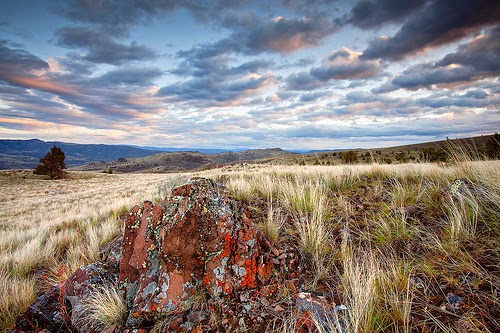The Painting of Water
by Kathleen L. Housley
“I can give perfect satisfaction...
“I can give perfect satisfaction...
in guiding water from one place to another.”
-Leonardo da Vinci*
*While Leonardo da Vinci was painting the Mona Lisa, he was working with Niccolò Machiavelli as a hydraulic engineer (in Italian, maestro di acque) on plans to divert the Arno River with the goal of making Florence into a seaport. The recent discovery of the New World by Columbus and the subsequent voyages by the Florentine Amerigo Vespucci heightened the project’s importance. Leonardo completed extensive aerial drawings and designed an earth-moving machine. However, the engineer hired to do the job radically changed the design, decreasing the depth of the canal from 30 to 14 feet. In 1504, the project was abandoned when a flood collapsed the walls and 80 soldiers drowned.
The Painting of Water
I.
The Painting of Water
I.
Even in his dreams there are rivers,
murmuring to the Maestro of Water
to study the vortices of rapids,
the swirling formation of eddies,
to sketch the velocity of floods
roaring down the Tuscan hills,
comparing their hydraulic power
to the dark force of blood coursing
through narrow arterial tunnels,
to draw as well the slow process
of streambed sedimentation similar
to the silting up of veins in old age,
revealed to him by covert dissection
and rigorous analyses as clandestine
as his ideas of evolutionary change.
He wakes with a start, inundated
by the torrent of too many ideas
gushing from the headwaters
of his brain, and before sunlight
glints on the Adriatic and suffuses
pink the Apennines’ eastern slopes,
he jumps from his bed and lets loose
a little rivulet of sepia ink across
the flood plain of an empty page:
here winding into a design for wings,
there looping into a rotating bridge,
before diverting to vacant space
near the paper’s edge where it turns
into a cataract of mirror-imaged words
about shell fossils embedded in cliffs
and geological time far more vast
than Biblical reckoning—Noah’s flood
and crowded ark being replaced
by repeated submergences separated
by the slow uplift of stratified rock.
II.
Given the super-saturation of his mind,
how can he paint her young anatomy
other than as liquid panorama?
Posing for him now, La Gioconda flows,
the ripples in her sleeves like standing waves
reflecting gold, the curlicues of her hair
under a diaphanous veil identical
to swirls of spray at a waterfall’s base.
Had there been no expectation by patrons
that a portrait be painted skin-side-out,
he would be delighted to draw her ribs
arching beneath the pleats of her dress,
the spreading delta of arteries and veins
within her hands, the pulse in her wrist
palpable beneath the hairs of his brush,
whispering of a hidden riparian system
more complex than that of the Arno
which he has recently surveyed,
drawing a detailed bird’s-eye view
as part of a scheme to divert the river,
making his beloved city of Florence,
fifty miles inland, into a prosperous port,
all of which he intends to include
in the background, underpainted blue,
along with jagged peaks, green valleys,
a stone viaduct crossing a stream,
a sinuous road and a bay leading
in the distance to a New World
beckoning in a warm golden haze,
light and shade blending like sea foam,
so that while he seems to portray
a beautiful woman, as he touches
her outlined lips with the brush’s tip,
he siphons into her ineffable smile
the confluence of her bloodstream
and the Earth’s primordial waters,
upwelling with his own heart’s awe
into a landscape beyond the curve of time.
III.
Nearly finished,
he leaves a digit
in her left hand
incomplete,
as if he fears
a final stroke
will stop up
all of nature,
defying
the laws of motion
and stilling
the Prime Mover
who of necessity
must move
or all the world
be dead.
Dynamics
demands that
he unsettle
equilibrium;
one undone
finger,
and her heart
pumps.
Kathleen L. Housley, 2011
About the Author
Making her home in Connecticut, Kathleen L. Housley graduated from Upsala College and holds a Masters from Wesleyan University. Her research and writing interests display a faithful humanism that is both deep and wide, integrating such diverse fields of inquiry as 19th-century suffragism, abolitionism, and Bible translation, the history of art and art collecting in the Modern period, cosmology, anthropology, and the material sciences—all in addition to theology and poetry. Her latest three books are Black Sand: The History of Titanium (2007); a book of poetry, Firmament
(2007); a book of poetry, Firmament (2008); and Keys to the Kingdom: Reflections on Music and the Mind
(2008); and Keys to the Kingdom: Reflections on Music and the Mind (2010), a collection of meditations on the transformative power of music and friendship. Her work has appeared in the journals Image, Isotope, The Christian Century, and Ars Medica, and her poem “A Psalm for a New Human Species” previously appeared on the BioLogos website, in addition to the first of her Leonardo poems, “The Painting of Wings.”
(2010), a collection of meditations on the transformative power of music and friendship. Her work has appeared in the journals Image, Isotope, The Christian Century, and Ars Medica, and her poem “A Psalm for a New Human Species” previously appeared on the BioLogos website, in addition to the first of her Leonardo poems, “The Painting of Wings.”










